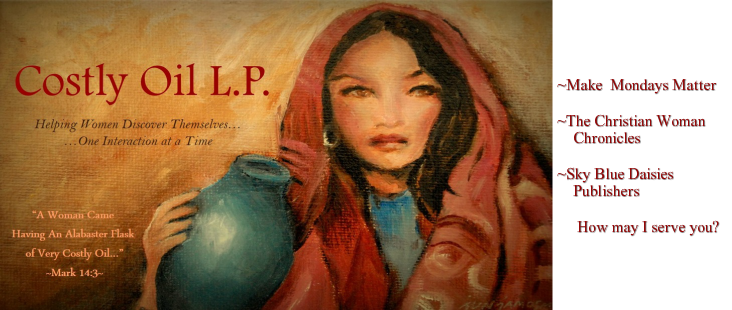| | "Six days before the Passover, Jesus came to Bethany, where Lazarus lived, whom Jesus had raised from the dead." |
“And He, bearing His cross, went out to a place called the Place of a Skull, which is called in Hebrew, Golgotha, where they crucified Him, and two others with Him, one on either side, and Jesus in the center. Now Pilate wrote a title and put it on the cross. And the writing was: JESUS OF NAZARETH, THE KING OF THE JEWS.”
One dark Friday afternoon,
Jesus was crucified King of the Jews;
he bled and died for the sins of the world.
The wrath of God was satisfied,
now I live forevermore.
Free from sin’s defeat and shame,
I walk in freedom in Jesus’ name.
Sunday’s Coming,
Dawn~
“Now before the Feast of the Passover, when Jesus knew that His hour had come that He should depart from this world to the Father, having loved His own who were in the world, He loved them to the end.”
Jesus ate the traditional Passover meal with all His disciples, identified His betrayer, and then proceeded to wash His disciple’s feet…the night before He was going to suffer a brutal and humiliating death. Later that night He prayed in the Garden of Gethsemane, “Not my will but Your will be done” to God The Father. MANY across the world will be participating in communion this Passion Week. When we receive Communion, or The Lord’s Supper as some call it, do we remember these events and end our day surrendering our entire will and lives to God?
Passion Week – Tuesday (Mark 14:9) – Jesus Anointed at Bethany
Devotion by Amanda Hershey (facebook.com/amanda.hershey.9)
“Verily I say unto you, Wheresoever this gospel shall be preached throughout the whole world, this also that she hath done shall be spoken of for a memorial of her." (KJV)
Those are powerful words spoken of by Jesus concerning Mary and the costly anointing she just did upon Him. He says in verse 6, "Let her alone; why trouble ye her? she hath wrought a good work on me."
I immediately think of Proverbs 31:31, "Give her of the fruit of her hands; and let her own works praise her in the gate."
Well Mary's works are praising her. Even Jesus declares so. Imagine being called virtuous by Christ Himself! But isn't that what we should be living for anyway? To be virtuous for His eyes alone, and not for some person; to be virtuous for His good opinion and favor, not the praise of man?
"For do I now persuade men, or God? or do I seek to please men? for if I yet pleased men, I should not be the servant of Christ." (Galatians 1:10)
Mary was serving Christ in this act of worship. She didn't really care what anyone else thought, even though people did complain and get upset about her "wasting" so much money. But she didn't let that bother her because she was too busy pleasing Christ to be concerned about pleasing man.
Who are you seeking to please?
Would Christ call you virtuous?
Passion Week – Monday (Mark 11:15-19) - Jesus Cleanses the Temple
Condemning tradition…almost nothing incites anger in the hearts of people more than questioning, confronting, or contradicting tradition. It wasn’t enough that Jesus did this in local synagogues, here He was in the temple at Jerusalem, during Passover week, overturning tradition…as if He had such authority…and accusing those practicing such tradition of exploiting God’s people! Yikes!
Passion Week – Palm Sunday (Zechariah 9:9) - The Triumphal Entry
"Rejoice, O people of Zion! Shout in triumph, O people of Jerusalem! Look, your king is coming to you. He is righteous and victorious, yet he is humble, riding on a donkey—riding on a donkey’s colt." (NLT)
Probably the greatest of Christ’s acts that further fueled the anger of the Jews was the prophesied, and shockingly uncharacteristically bold entrance into Jerusalem. Every Jewish man had to know the significance of Jesus’ riding into the Holy City on a donkey, which is what most likely gave them their ammunition to accuse Him of claiming to be the King of the Jews, which Jesus never actually claimed. The people making this claim on Jesus’ behalf, worshipping Him in jubilant fashion, and His refusal to silence them, only incited greater fury in the hearts of those who wanted to kill Him.
Passion Week
Two of my favorite little discussed facts about the week prior to Jesus’ crucifixion and resurrection is what could be the greatest catalyst for His crucifixion: restoring the sight of a man who was born blind (John chapter 9), and the raising of Lazarus from the dead (John chapter 11). The healing of the blind man is vitally significant because prophecy declares that restoring sight to the blind, is reserved for only ONE: The Messiah (Isaiah 42:7). It is the one miracle that no other had ever performed; and, until that time, in the midst of all of His miracles, Jesus had never healed a blind person. This miracle seemed to have been reserved for such a time that God was ready for Jesus' full glory, and final days, to unfold. Lazarus’ death and resurrection is recorded only in the Book of John, and makes it crystal clear that this event exponentially aggravated the prior miracle of the blind man being healed. The Jews became unstoppable in their determination to kill Jesus, even going as far as plotting to kill Lazarus. But the plan of Christ was already decided, and He continued to intentionally and methodically add fuel to the fire of the Jew’s fury with every action and sermon He would preach that week, until their, and God’s, wrath was satisfied with Jesus' death on the cross.



 RSS Feed
RSS Feed
